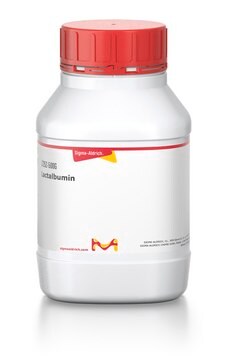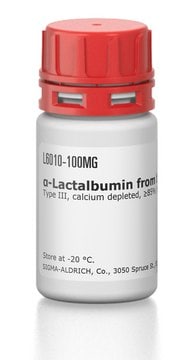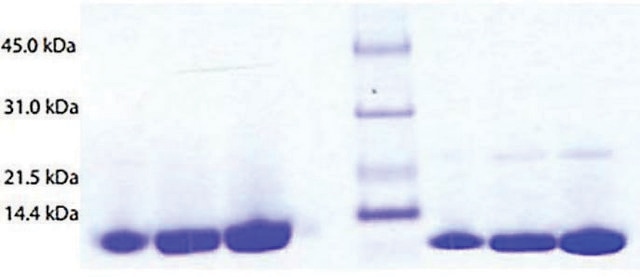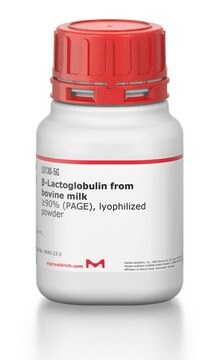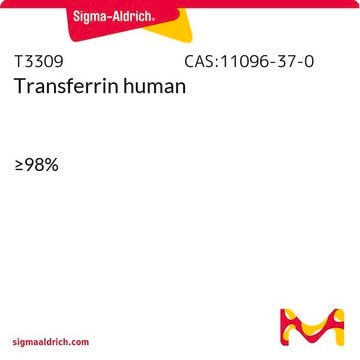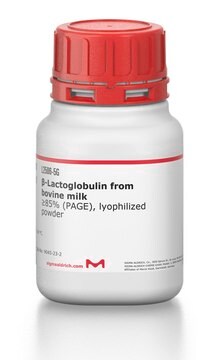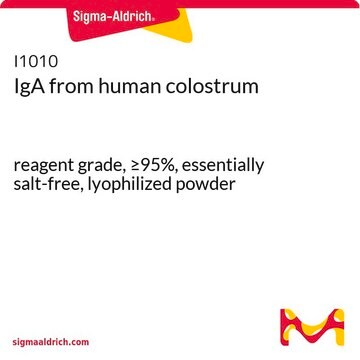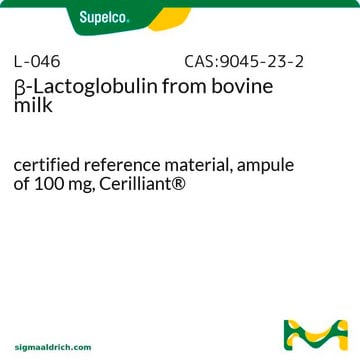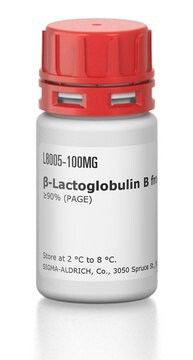L7269
α-Lactalbumin from human milk
≥95% (SDS-PAGE), lyophilized powder
About This Item
Recommended Products
biological source
human milk
Quality Level
Assay
≥95% (SDS-PAGE)
form
lyophilized powder
mol wt
14,070 Da by calculation
solubility
H2O: soluble 10 mg/mL(lit.)
UniProt accession no.
storage temp.
−20°C
Gene Information
human ... LALBA(3906)
Looking for similar products? Visit Product Comparison Guide
General description
Application
- to study the partitioning behavior of different monomeric proteins with exposure to amino acids on the protein surface
- to study the interaction between α-LA and cathepsin D
- to study the ability of breast milk fractions to enhance the transepithelial flux of extrinsic iron in colon carcinoma cell line
Biochem/physiol Actions
Storage Class Code
11 - Combustible Solids
WGK
WGK 3
Flash Point(F)
Not applicable
Flash Point(C)
Not applicable
Regulatory Listings
Regulatory Listings are mainly provided for chemical products. Only limited information can be provided here for non-chemical products. No entry means none of the components are listed. It is the user’s obligation to ensure the safe and legal use of the product.
JAN Code
L7269-1MG:
L7269-5MG:
L7269-25MG:
L7269-VAR:
L7269-100MG:
L7269-BULK:
L7269PROC:
L7269-PH:
Certificates of Analysis (COA)
Search for Certificates of Analysis (COA) by entering the products Lot/Batch Number. Lot and Batch Numbers can be found on a product’s label following the words ‘Lot’ or ‘Batch’.
Already Own This Product?
Find documentation for the products that you have recently purchased in the Document Library.
Customers Also Viewed
Our team of scientists has experience in all areas of research including Life Science, Material Science, Chemical Synthesis, Chromatography, Analytical and many others.
Contact Technical Service